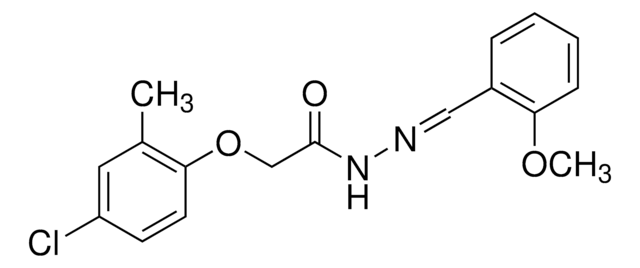B3023
Bumetanide
≥98% (TLC), powder, Na⁺/K⁺/Cl⁻ cotransporter inhibitor
Synonym(s):
3-(Aminosulfonyl)-5-(butylamino)-4-phenoxybenzoic acid
About This Item
Recommended Products
product name
Bumetanide, ≥98%
Assay
≥98%
form
powder
originator
Roche
SMILES string
CCCCNc1cc(cc(c1Oc2ccccc2)S(N)(=O)=O)C(O)=O
InChI
1S/C17H20N2O5S/c1-2-3-9-19-14-10-12(17(20)21)11-15(25(18,22)23)16(14)24-13-7-5-4-6-8-13/h4-8,10-11,19H,2-3,9H2,1H3,(H,20,21)(H2,18,22,23)
InChI key
MAEIEVLCKWDQJH-UHFFFAOYSA-N
Gene Information
human ... SLC12A1(6557)
Looking for similar products? Visit Product Comparison Guide
Biochem/physiol Actions
Features and Benefits
Storage Class Code
11 - Combustible Solids
WGK
WGK 3
Flash Point(F)
Not applicable
Flash Point(C)
Not applicable
Personal Protective Equipment
Certificates of Analysis (COA)
Search for Certificates of Analysis (COA) by entering the products Lot/Batch Number. Lot and Batch Numbers can be found on a product’s label following the words ‘Lot’ or ‘Batch’.
Already Own This Product?
Find documentation for the products that you have recently purchased in the Document Library.
Customers Also Viewed
Articles
Discover Bioactive Small Molecules for ADME/Tox
Discover Bioactive Small Molecules for ADME/Tox
Discover Bioactive Small Molecules for ADME/Tox
Discover Bioactive Small Molecules for ADME/Tox
Our team of scientists has experience in all areas of research including Life Science, Material Science, Chemical Synthesis, Chromatography, Analytical and many others.
Contact Technical Service













